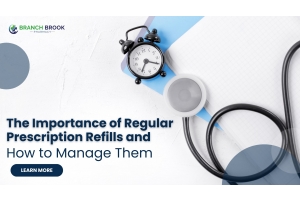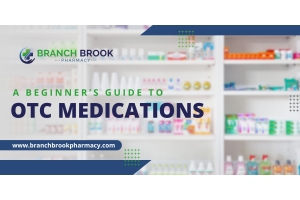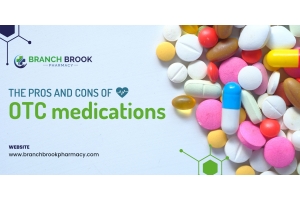Quick Tips to Manage Common Digestive Disorders
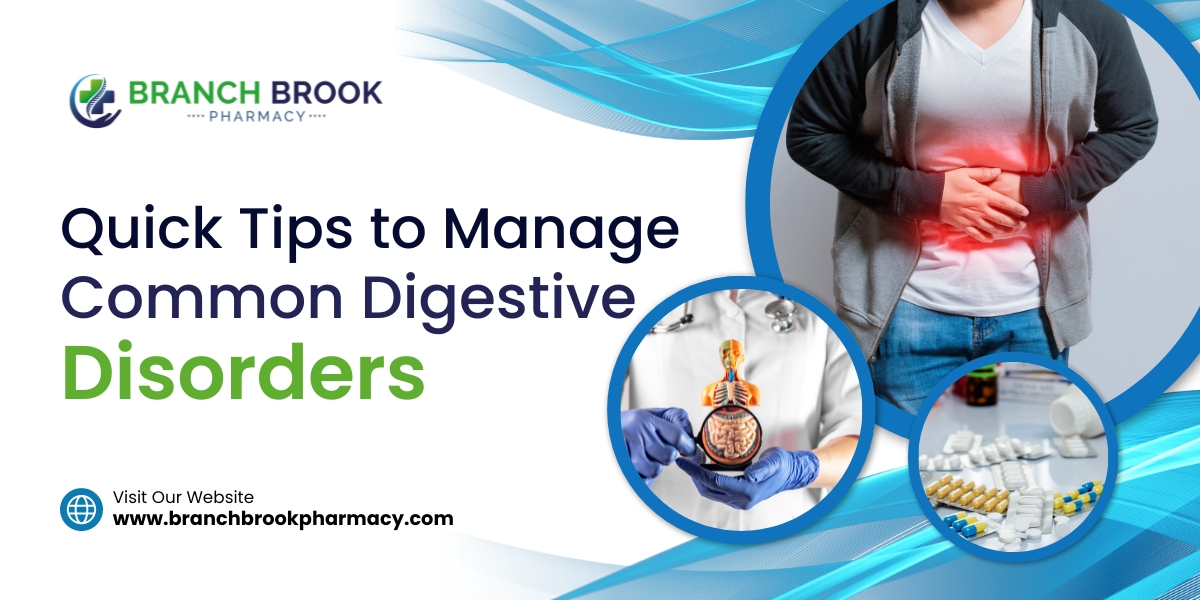
After a certain age, we tend to experience health issues that become more frequent. Digestive issues are a similar condition that may start disrupting your everyday activities. You may begin experiencing heartburn and gas, the primary symptoms of digestive disorders.
Are you aware of what manages the health of this system? The significant determinants of digestive health are your food habits and lifestyle choices. Several factors like medications, lack of exercise, excessive consumption of alcoholic drinks, and other habits lead to digestive issues.
However, you can take certain precautions and maintain a healthy digestive system to ensure optimum health!
Tame Your Tummy: Solutions for Common Digestive Issues
Digestive woes are a common enemy, affecting everyone at some point. From occasional gas to uncomfortable heartburn, these problems can be frustrating and disrupt your day. But fear not! There are simple solutions and knowledge readily available to help you conquer digestive discomfort.
This post will equip you with the knowledge to:
- Understand the root cause of your digestive issues.
- Discover preventative measures to keep problems at bay.
- Learn effective management strategies when discomfort strikes.
- Navigate conversations with your pharmacist by knowing the right questions to ask.
- Recognize situations that warrant a doctor's visit.
- With the right knowledge and solutions, you can say goodbye to digestive disruptions and reclaim control of your well-being.
Common digestive issues
Digestion is a long process that is not just limited to the stomach! And so, the problem can occur anywhere. Here are some common digestive disorders you may experience.
- Gas and Bloating:
This can be an uncomfortable condition to go through! Production is a normal process in the digestive system, but it can be overproduced under certain circumstances. There are certain foods that can cause bloating, such as apples, cabbage, cauliflower, mushrooms, and others. Apart from that, even some medications cause gas as a side effect! Besides that, you may also experience bloating or swelling up of the belly due to gas. - Heartburn:
Also known as acid indigestion, this is quite an uncomfortable and painful burning sensation that you may feel in your chest. Many times, the pain can also spread to the neck, arms, and jaw. - Constipation:
Another major digestive disorder is constipation. Are you experiencing difficult stools or having fewer bowel movements than you usually experience? Sometimes, constipation is normal, but if it occurs frequently, seek medical attention.
Quick Ways to Manage All Common Digestive Issues
Apart from undergoing a diagnosis and taking medications, you can follow some simple tips to help prevent primary digestive disorders. Check out these quick, helpful tips that effectively tackle different digestive diseases!
Your Digestive Journey: From Crumbs to Comfort
Ever wondered how a delicious meal transforms into the energy that fuels your day? It's all thanks to the incredible journey your food takes through your digestive system, a complex network of organs working together in harmony.
Let's embark on this digestive adventure!
The Mouth: The Chewing Crew Gets to Work
Your journey starts right where the magic happens - your mouth! As you chew, your saliva, filled with digestive enzymes, gets released, kickstarting the breakdown of carbohydrates. This initial step prepares the food for further processing.
The Esophagus: The Speedy Delivery Tube
Once swallowed, your chewed-up food embarks on a short, muscular ride down the esophagus, a tube connecting your mouth to your stomach. Picture a muscular conveyor belt efficiently transporting the food onwards.
The Stomach: The Powerhouse of Breakdown
Next stop, the stomach! This muscular sac acts like a powerful blender, churning and mixing the food with strong digestive juices. Here, proteins are broken down further, getting them ready for absorption.
The Small Intestine: The Nutrient Absorption Highway
The small intestine, a long and winding tube, takes center stage. It's where most of the magic happens! Powerful digestive juices from the pancreas and liver break down food further, turning it into small molecules that can be easily absorbed by the bloodstream and transported throughout your body. Think of it as a highway where essential nutrients are loaded and delivered to various destinations.
The Large Intestine: Making the Most of What's Left
The large intestine, also known as the colon, takes care of what's left after the small intestine has extracted the valuable nutrients. It absorbs water, forming stool, the waste product of digestion.
The Final Destination: Elimination
Finally, the rectum, the last part of the large intestine, stores the stool until it's eliminated through the anus.
Understanding this fascinating journey can help you identify potential causes of digestive problems and make informed choices to maintain a healthy and comfortable digestive system.
- Avoid the items that trigger the conditions:
The triggering factors of digestive problems vary from person to person. You must identify the aspects that trigger your issues, such as certain food habits and other daily activities. For some, carbonated or caffeinated drinks can cause gas and bloating. While for others, it can be due to consuming dairy products or vegetables like cabbage and cauliflower. Apart from these, some OTC drugs may also lead to digestive issues. Or you may experience problems with your menstrual cycle! Keep track of the pattern and avoid food items or habits that may lead to uncomfortable digestive issues. - Include a fibre-rich diet:
Fibber-rich food sources are your digestive system’s best friend! Fibre helps maintain smooth and regular bowel movements. It is the best source for preventing constipation and improving gut health Besides that, it also plays a crucial role in reducing IBS, diarrhoea, gas, and bloating. - Stay hydrated:
Having sufficient water is helpful for your overall health. It leads to smooth bowel movements through better absorption of all the nutrients in the body. Have about eight glasses of clean water, at the minimum, to avoid fundamental digestive issues! Staying hydrated is even more important during diarrhoea when your body loses a lot of water. - Regular exercise:
If you engage in physical activities, half your game is won! It will help you maintain a healthy weight and lead an active lifestyle. It can also manage the healthy functioning of the digestive system by reducing constipation and other such issues. - Avoid the excessive consumption of high-fat foods:
Consuming high-fat or highly saturated foods is unhealthy. These food items carry increased chances of causing disorders like liver disease, high blood cholesterol, diabetes, and others. Fatty foods even slow digestion and may lead to common issues like stomach upset, bloating, gas, etc. - Stop consuming excessive alcoholic or caffeinated beverages:
Increased consumption of alcohol or smoking interferes with smooth digestion. All these items contribute to heartburn, diarrhoea, and flatulence. With alcohol consumption for an extended period, your body may ultimately lose its capacity to absorb minerals and nutrients. - Regularity of eating schedule:
Make sure to maintain a schedule for your meals. Try taking meals at a regular and proper time every day, which will, in turn, boost your entire digestive process! Divide your meals into smaller ones frequently rather than having a large dinner after long hours. This will let the digestive system perform with ease and smoothly!
Which foods cause gas?
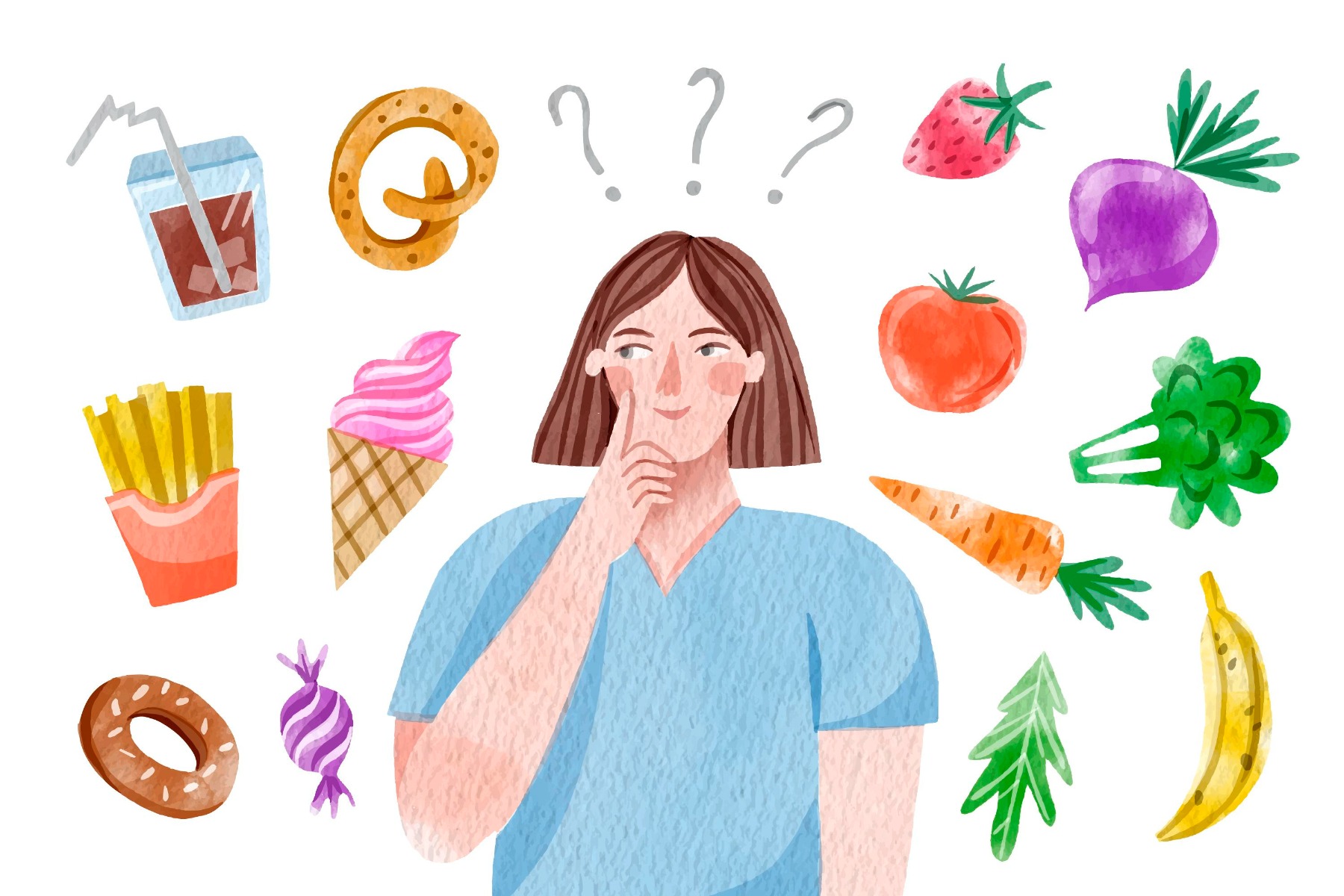
You’ve probably noticed you feel gassy after eating certain foods. Cut back on the common culprits:
- Apples
- Asparagus
- Beans
- Broccoli
- Brussels sprouts
- Cabbage
- Cauliflower
- Milk and dairy products
- Mushrooms
- Onions
- Peaches
- Pears
- Prunes
- Wheat
Unveiling the Mystery of Bloating: Causes and Solutions
Bloating, that uncomfortable feeling of fullness and swelling in your belly, can disrupt your day and leave you feeling less than comfortable. While generally harmless, it's important to understand the underlying causes and explore solutions to find relief.
What triggers the balloon effect?
| Cause | Description |
| Gas buildup | Swallowing air, bacterial breakdown of food, certain medications |
| Digestive conditions (IBS) | Abdominal pain, cramping, irregular bowel movements |
| Celiac disease | Immune response to gluten, damaging the small intestine |
| Hormonal fluctuations | Hormonal changes during menstrual cycle |
| Constipation | Difficulty passing stool |
Several factors can contribute to bloating:
- Gas buildup: When gas accumulates in your stomach and intestines due to swallowing air, bacterial breakdown of food, or certain medications, it can cause a distended feeling.
- Digestive conditions: Irritable Bowel Syndrome (IBS), a chronic condition causing abdominal pain, cramping, and irregular bowel movements, can contribute to bloating.
- Celiac disease: This autoimmune disorder triggers an immune response to gluten, a protein found in wheat, barley, and rye, damaging the small intestine and often leading to bloating.
- Hormonal fluctuations: Women may experience bloating due to hormonal changes during their menstrual cycle.
- Constipation: Difficulty passing stool can lead to a feeling of fullness and abdominal distention.
Combating the bloat: Effective strategies
Fortunately, various lifestyle modifications can help manage bloating:
- Dietary adjustments: Reduce fatty foods, avoid fizzy drinks, and limit gas-producing foods like beans, cruciferous vegetables, and certain fruits.
- Mindful eating: Eat and drink slowly to avoid swallowing excess air.
- Quit smoking: Smoking can contribute to bloating.
- Exercise regularly: Physical activity promotes digestion and can alleviate bloating.
- Explore alternatives: Consider avoiding sweeteners like fructose and sorbitol, often found in candies, gum, and low-carb products, as they can trigger bloating in some individuals.
Table 2: Lifestyle Modifications for Reducing Bloating
| Strategy | Description |
| Dietary adjustments | Reduce fatty foods, avoid fizzy drinks, limit gas-producing foods |
| Mindful eating | Eat and drink slowly |
| Quit smoking | Smoking can contribute to bloating |
| Exercise regularly | Promotes digestion and can alleviate bloating |
| Explore alternatives | Consider avoiding certain sweeteners |
What are worst foods for gut health
While no single food is universally bad for everyone's gut health, some types of foods can negatively impact the delicate balance of gut bacteria in many individuals. Here are some categories of foods to be mindful of:
- Ultra-processed foods: Often loaded with added sugar, unhealthy fats, and artificial ingredients, these foods lack the fiber and nutrients that benefit gut bacteria. Examples include sugary drinks, packaged snacks, and processed meats.
- Excessive red meat: While red meat in moderation can be part of a healthy diet, excessive consumption has been linked to the growth of gut bacteria associated with inflammation and increased risk of chronic diseases.
- Refined grains: White bread, pasta, and other refined grains are stripped of their fiber content, which plays a crucial role in gut health. These foods can lead to blood sugar spikes and contribute to an imbalance in gut bacteria.
- Artificial sweeteners: While seemingly calorie-free, some artificial sweeteners, particularly sugar alcohols like sorbitol and mannitol, can cause digestive discomfort, bloating, and negatively impact gut bacteria in certain individuals.
- Excessive saturated and trans fats: Found in fried foods, fatty meats, and some dairy products, excessive intake of saturated and trans fats can contribute to inflammation throughout the body, potentially impacting gut health as well.
- Foods high in FODMAPs: FODMAPs are short-chain carbohydrates found in various foods, including fruits, vegetables, dairy products, and grains. These can cause digestive issues like gas, bloating, and diarrhea in individuals with sensitivities. It's important to note that FODMAP sensitivity is not the same as a food allergy or intolerance and should be diagnosed by a healthcare professional.
Conclusion:
Having digestive issues on a regular basis can hinder your daily activities! Consider the above tips to prevent gas, bloating, and heartburn, among other common digestive disorders. However, if your symptoms worsen, consult your doctor for appropriate treatment.
Read More : The Spring Allergy: Treatment & Prevention - Branch Brook Pharmacy





